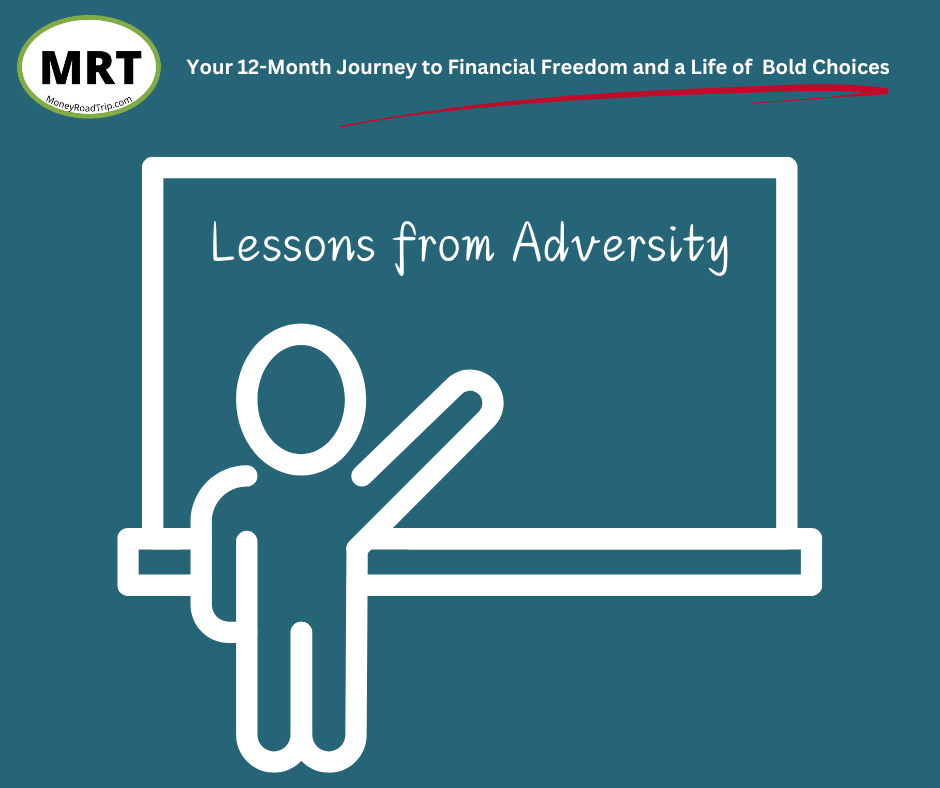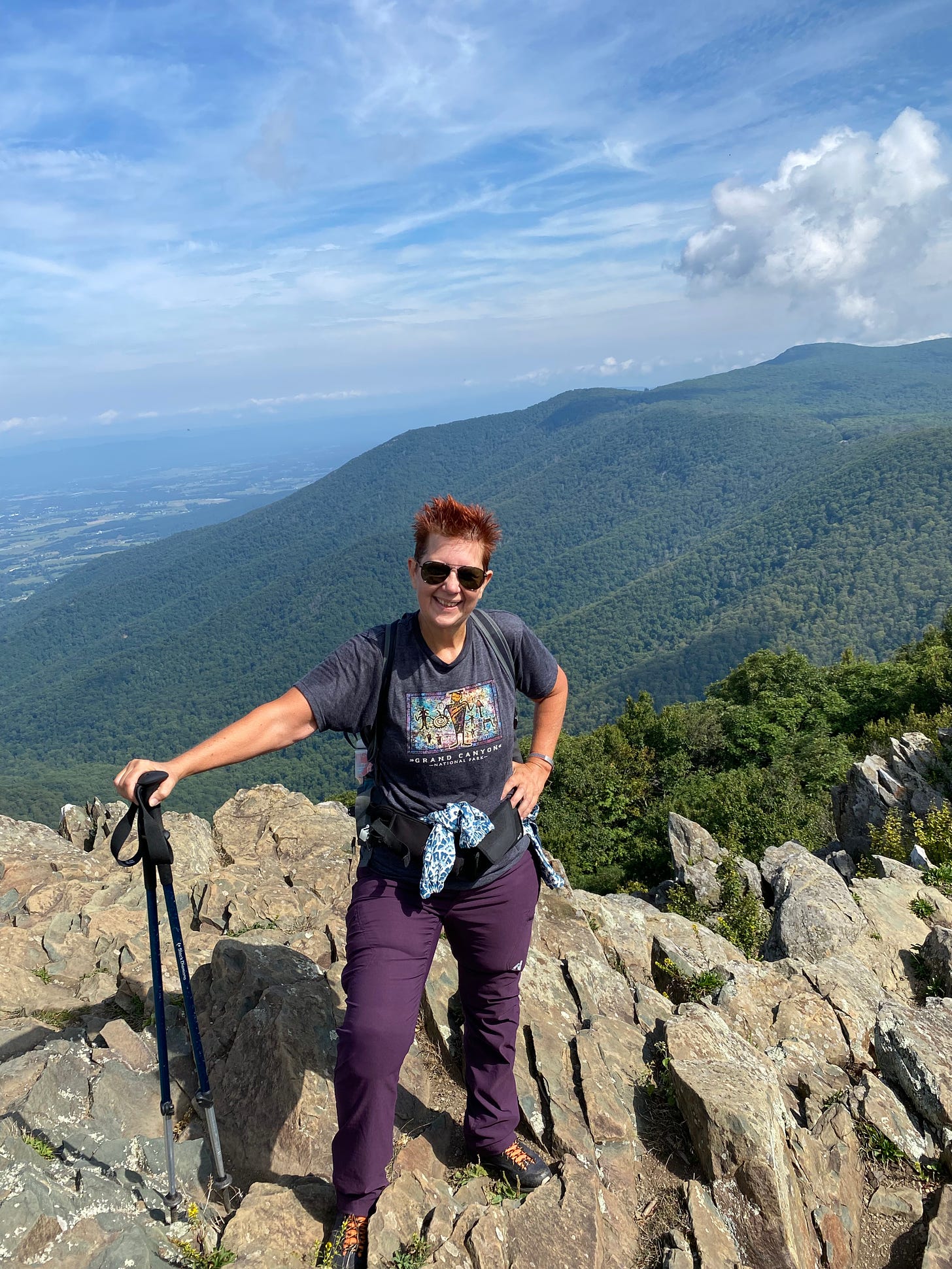Update: This article, which I adapted for this post, first appeared on a blog called MoneyWithAPurpose, which has since been sold.
How to Survive a Fall from Ph.D. to Poverty and Back
I’m a single mom who survived a journey from Ph.D. to poverty and back. It sounds crazy, doesn’t it?
And it is crazy.
This is my story. I thought earning my Ph.D. would lead to a great job paying a good wage for a long time. And I was right. Except I had to go through a period of real poverty before I got that job. In this interview, I take you through this incredible journey and offer some solid suggestions for anyone dealing with job loss.
Many people in these situations self-medicate with drugs or alcohol as a means of coping. Some fall into depression. I will tell you that the perseverance and persistence to get through this dark time shaped who I am today. I share my story in hopes it encourages those experiencing something similar. The lessons I learned, and the suggestions I make do just that.
Tell us a little about yourself
I’m a single mom with a Ph.D. I had a fabulous career and am now an entrepreneur. I’m in my late-50s; my adult child lives independently, which makes me an empty-nester. I’m a sociologist, writer, course creator, and financial coach. I help people build financial freedom so that they can spend more days doing the things they love. Tired of working from the dining room table, in 2020 I traded in my house in Virginia for an RV and have been traveling the country ever since. My roots are in the Midwest, having grown up on the family dairy farm in central Wisconsin.
Tell us a little bit about your career path
I have a doctoral degree in sociology from Syracuse University. I wrote my dissertation while working full-time for the University of California. That job disappeared in the midst of a state budget crisis, and it took me more than three years to find another salaried position with benefits.
My first big break came in Atlanta, where I became a Crime Analyst for the police department. This was back in the late 1990s, way before the CSI craze. That led to a wonderful research position in the DC suburbs, where I evaluated the effectiveness of programs carried out under the Violence Against Women Act (VAWA). Several years later, I moved to southern Virginia to work on court reform issues. There I specialized in domestic violence, elder abuse, and adult guardianship matters.
In April 2018, I was fired after 16+ years of dedicated service. It’s a long story, but I was burned out and could no longer tolerate the dysfunction and toxicity of upper management. Since then, I’ve focused on reinventing myself and building the Money Road Trip.
When we talked about doing the interview, you said you knew quite a bit about adversity. And I completely agree! Walk us through some of that.
Timing is everything. I entered an academic market at exactly the wrong time. When I was 30, I earned my doctoral degree, got laid off from the University of California, and moved to Arizona. I tried my hand at creating a small business – it didn’t work.
From there, I moved back to my home state of Wisconsin and picked up an adjunct faculty position at a University. Basically, I received a small wage for teaching college courses—no health insurance and no benefits. The adjunct position turned into a dead end, so I moved to the Atlanta area, where my sister lived and offered a free couch.
By then, everything I owned fit into my little Honda hatchback. Once in Atlanta, I had a difficult time finding work. Eventually, I lived “underground,” paying cash to sleep in a cockroach-infested basement apartment each night. It’s hard to explain the desperation and despair during those days. I was applying for jobs and leaving off the Ph.D. because the degree made me “overqualified” for too many jobs. I grabbed whatever work I could find, even a $6/hour job at Target.
Truthfully, I was simply surviving. One of my lowest moments came when my trusty Honda started to fail. The A/C stopped working, but the heat worked just fine – what a great way to spend a summer in Atlanta! And then things got worse—the car could barely top 45 mph, which made for a white-knuckled drive on the freeway. And the first mechanic I took it to wanted cash to fix it. What cash? I remember pulling into a parking lot and just crying. How was it possible that my life was so screwed up? I racked up the credit card and personal debt during this time. And I had no health insurance. No retirement. No savings. I lived in absolute poverty and wondered if I’d wasted all those years getting an education.
Recently, I looked at my social security earnings history. And there were my earnings from 1995, the depths of my horrid life. That was the year I turned 32. I earned $3,317. While money can’t buy happiness, poverty only buys despair. Some days, all you can do is decide to wake up and live another day. Back then, too many days were spent simply surviving.
Wow! You’re right! You’ve endured a lot over the years. What was the key for your getting through it?
It may sound strange, but I wrote about this in one of my blog posts – How a Fictional Character Saved my Life. I created an alter-ego. Someone who was smart, passionate, and had her life together. I outlined a series of mysteries featuring my bad-ass character, and by doing so, I found an escape from the cockroaches and gloom, if only for a short time. That’s what kept me going. While I’ve never done anything with those outlines and drafts, my fictional character saw me through some dark days.
The odd thing was that my love of a good mystery fed into my excitement over a job posting for a position as Crime Analyst. I downplayed my Ph.D. to get the job. And that job opened the door to an amazing career. I would not be where I am today had I not endured those years of poverty and taken the risk of relocating to find better opportunities.
The financial consequences had to be significant. How did you overcome that? What, if anything, did you change about your finances as a result?
Absolute poverty. That’s where I was in my early 30s. I owned nothing other than debt, and that was probably over $20,000 at the time. When I caught my break in Atlanta, I moved into my very own one-bedroom apartment. It was an enormous step up from the cockroach basement. The first thing I bought was a new bed, and I remember the sheer joy of lying on my luxurious mattress. But I held off on buying other things. I used a lawn chair for furniture and didn’t bother buying a television for quite some time. To help pay off debt, I signed up for a credit card debt management service, which worked extremely well for me. I diverted most of my income toward the debt, so by the time I made my move to northern Virginia a year later, I had paid off most of my debt.
Once in Virginia, I began to earn a decent salary. I’ve always had to rely on myself—I never had a partner who could provide a second income, and there’s no inheritance coming my way. For the most part, I treated my paycheck as if it had to support two people. My goal was to put half of my take-home pay into retirement, savings, and investments. I did whatever I needed to do to ensure that I would never live in poverty again.
While I was living frugally, I didn’t get interested in personal finances until I reached age 40, when I realized I had reached $100,000 in my retirement funds. That seemed like an awful lot of money, but I didn’t have any plans written down on paper. Then I discovered David Bach’s Smart Women Finish Rich book. David talks about a dream fund, and I just about lost my mind – I’d never heard of a dream fund. I grew up working class, so we focused on savings and retirement. A dream fund? Wow! What a concept. That really sparked my imagination, and I wondered what life might be like if I didn’t have to rely on a paycheck. That’s what really pushed me toward Excel spreadsheets, net worth calculations, and money geekdom!
What encouragement would you offer to anyone who might be dealing with job loss or business failure?
I had always worked hard and produced high-quality products. And I had expected the Ph.D. to open doors for me. I learned the hard way that jobs can disappear in an instant, and the next “best thing” might never drop in your lap. In hindsight, here are my suggestions for those dealing with a job loss or business failure.
Don’t stop at Plan B. At the time, I didn’t even have a Plan B when I was downsized from my job at age 30. I had Plan A—get a tenure-track faculty position. That was it! I couldn’t imagine that Plan A would fail. I was naïve. Not only should I have written down a Plan B, but I needed a Plan C, D, E, and F. Had I truly considered a worst-case scenario, perhaps I would have saved myself the troubles that lay ahead?
Network, network, network. I believed in the meritocracy—my education and the quality of my work would be sufficient to land me a great position. While I eventually created a wonderful career, my lack of networking really hurt my chances. And at this point in my life, I’ve witnessed many people receiving cushy jobs based on who they know, rather than what they know. It’s not a fair playing field. So, build connections and then call on them when you need a helping hand.
Surround yourself with positive people. If you’ve lost a job or your business failed, you already have enough self-doubts and worries that you just don’t need constant reminders of your shortcomings. Sometimes you might have to distance yourself from close friends and family members who provide little more than criticism. Build a community of supportive, energetic, happy people who can encourage you as you rebuild your life.
Save until it hurts! Losing my job in my 50s was a whole lot easier than when I was in my 30s for one simple reason—I had built enough financial freedom to have choices. I bought time, and I bought the opportunity. My savings and investments outside of my retirement account allowed me to invest in a new enterprise and to build a new identity. When times are good, save as much money as you can—preferably, at least one year of expenses in a non-retirement account. And then if your job disappears for whatever reason, you might find yourself walking out the door with a smile on your face!
One final word: When you return to your great successful self, stay humble.





